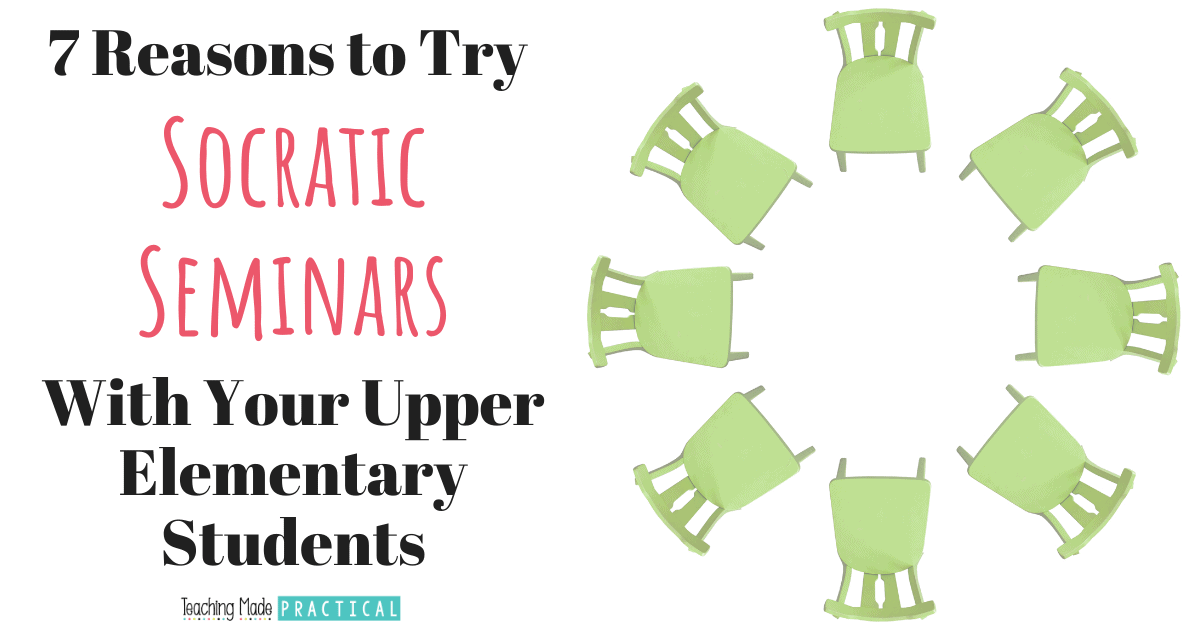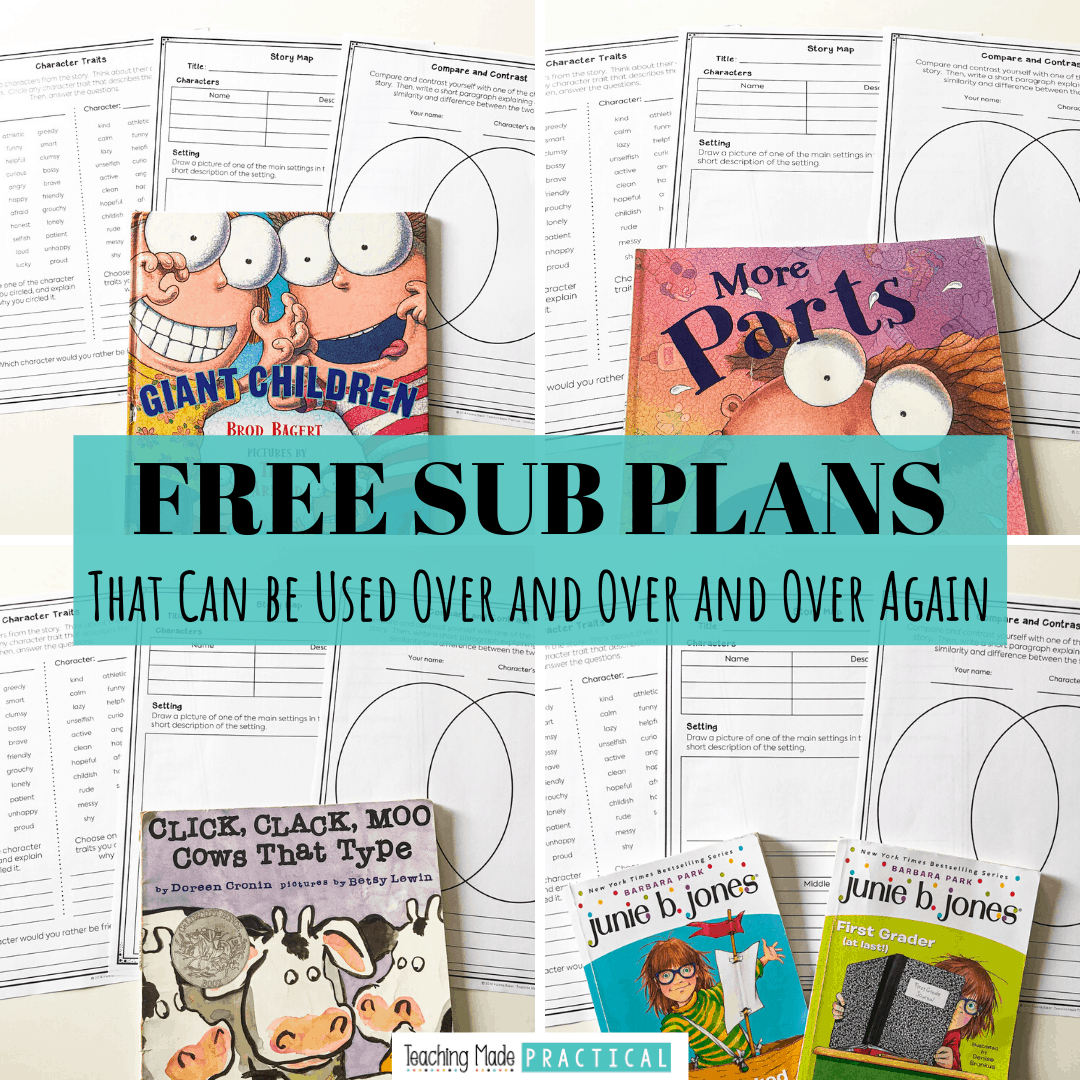
Written by guest blogger Jessica Thompson
I always thought I did a good job of facilitating classroom discussions. I would ask questions that required critical thinking, a student would answer, we would discuss, and I would ask another question for another student to answer.
I would be so proud of their responses and the learning that was occurring. Then I tried seminar discussions, also known as Socratic Seminars, and my eyes were opened.
Of course, learning was happening before, but there is always room for improvement. I saw the meaningful impact that the seminar discussions had on my students, and I was amazed. Students who struggled with comprehension skills using pencil and paper (the dreaded cold reads) were offering well thought out responses that showed higher level thinking. They were making connections in a way I never dreamed of.
Students of all levels were asking when we were doing more and if we could do seminar discussions during distance learning.
How to Run a Socratic Seminar Discussion with 3rd, 4th, or 5th Grade Students
The good news is that this instructional strategy can be done in many ways. I highly suggest searching online for examples and videos to find what suits your students best.
The most important thing is to set expectations and have them posted. The expectations could include items about being an active listener, not interrupting, not monopolizing the conversation, and being respectful. (Perhaps show your students the point of view discussion sentence starters you can find here.)
Select the text you would like to use and create open-ended questions that are thought-provoking for the students. The goal is for students to think on a deeper level by thinking about what their peers are sharing and then contributing their own thoughts. This will help the discussion continue.
It’s a great feeling when students come to class the next day wanting to share more because they were thinking about it at home.
7 Reasons to Try Seminar Discussions in Upper Elementary
- Seminar discussions not only influence student learning but also social skills. You set expectations for your students during the discussions. Students are given a voice to share their thoughts and also have to be active, engaged listeners during the discussions. They will also practice and show qualities of patience, respect, understanding, and learning the skill of agreeing to disagree gracefully. This will help you create a culture of kindness in your classroom.
- It’s easy to change up the method without losing the outcome. You can find all kinds of examples of seminar discussions online. Some even involve using a prop, like a soccer ball. You can have students create open-ended questions based on what they are reading or learning and tell them you may use some of their questions. Students could also take turns asking the question that will be posed to the class. Another option would be to give them the questions in advance and have them prepare for the discussion. This way, they would have clear examples of text evidence, and your hesitant participants may feel more comfortable sharing. In the past, most were directed for middle or high school, but there is more out there for the intermediate levels now. Everything can be adapted to suit your class.
- All students have a chance to shine. Everyone is encouraged to participate in the discussion. Students who are more hesitant can listen and add to what another student said. Students will feel ownership of their learning. It takes away a fear of failure or being called on to answer on the spot since they choose when and how to participate.
- You can take a grade. There are many examples of rubrics online, or you can take a participation grade by checking off when students participate in discussions in class. Other ways to take a grade would be to have students write a reflection on their experience or an exit ticket on what they learned. This helps vary the types of grades you take.
- Metacognition. Seminar discussions get your students thinking (and thinking about thinking) and using critical thinking skills. Tell your students that these discussions are brain practices. Just as they would practice for sports or instruments to improve in those areas, they also need to practice using their brain in different ways.
- These discussions could be done in any subject. I did these weekly during a novel my class read. Every Friday, there would be a question or two based on the chapters we read that week. Our discussion could take anywhere between 10-30 minutes based on the participation. I see this working beautifully in social studies and science as well. Math could be a little trickier, but I know there are creative teachers that would find a way.
- You sit back and watch. Seriously! You ask the open-ended question(s) and watch as the discussion unfolds. Keep it student-centered. Each time, students will get more comfortable sharing. You help moderate and keep the discussion on track, but the less you say, the more your students will.
Bonus: This could be a great activity for observations!
Never Stress Over Sub Plans Again!

Make copies, find a fiction book, and you'll be ready for any emergency that comes your way!

